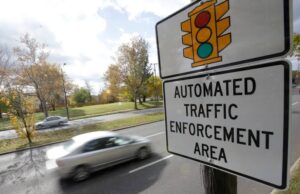When people first think of New Jersey, they often imagine its vibrant shorelines, bustling urban centers, and scenic highways. But what sometimes goes overlooked is the comprehensive set of traffic laws that keep our streets safe and organized. If you’re new to the Garden State or simply want to brush up on your knowledge, this guide will walk you through some of the most important rules of the road, common traffic violations, how fines are assessed, and what steps to take if you ever receive a traffic ticket.
Understanding New Jersey’s Traffic Laws
New Jersey’s traffic laws aren’t all that different from those in other states, but there are some unique aspects to be aware of:
- Speed Limits: The default speed limit in residential or business districts is typically 25 mph, unless otherwise posted. On most highways, you might see speed limits of 55 or 65 mph. Always pay attention to signs to avoid unintentional speeding.
- Driving Under the Influence (DUI): The legal blood alcohol limit in New Jersey is 0.08% for most drivers. For drivers under 21, the acceptable limit is effectively zero. Consequences can be severe, including license suspension, heavy fines, and even jail time if you’re caught driving intoxicated.
- Seat Belts and Child Safety Restraints: Everyone in a moving vehicle should be properly belted. Children must be in age-appropriate car seats or booster seats based on state law. Seat belt violations can add up quickly, and they’re also a major safety risk.
- Cell Phone Usage: It’s illegal to text or talk on a handheld phone while driving unless you are using a hands-free system. A first offense can lead to a fine, and the penalties increase with repeated offenses.
- Move Over Law: When you see emergency or construction vehicles with flashing lights on the roadside, you must move over one lane if possible. If you can’t safely move over, reduce your speed significantly to ensure the safety of those working alongside the road.
Common Traffic Violations
New Jersey, like all states, has its fair share of common traffic violations. Recognizing these can help you stay alert:
- Speeding: Exceeding the posted limit can lead to fines, points on your driving record, and even license suspension if it happens too often.
- Running Red Lights/Stop Signs: Local law enforcement and traffic cameras keep a keen eye on busy intersections. Blowing past a stop sign or a red light is not only dangerous but also comes with fines and points.
- Tailgating: Following too closely puts you at risk for accidents, particularly in rush-hour traffic. Police frequently issue tickets if they notice consistent tailgating.
Points on Your License
New Jersey uses a point system to keep track of driver infractions. If you rack up too many points within a specific timeframe, you could face surcharges, higher insurance premiums, or even a suspended license. Here’s a breakdown of how it works:
- Different violations come with different point values. For instance, speeding up to 14 mph over the limit is two points, while reckless driving can be five points.
- Accumulating six or more points within three years will result in additional monetary surcharges.
- If you get 12 or more points on your record, your license might be suspended.
Dealing with Traffic Fines
If you get a ticket in New Jersey, it’s crucial to handle it promptly. Ignoring a ticket can lead to increased penalties or even a warrant for your arrest. The fines for traffic violations vary based on the type of offense and your driving record. For example, a simple speeding ticket might come with a lower fee, while a DUI offense can cost thousands in fines and surcharges over time.
You might see references to njsurcharge in your paperwork if you accumulate too many points. Often, people are directed to www.njsurcharge.com to manage these payments. If you ever need to pay ticket online nj, many municipal courts offer an online portal to simplify the process.
Fighting or Paying a Ticket
- Pay the Fine: If you believe the ticket was justified or simply want to avoid the hassle of going to court, you can pay the ticket. Make sure to pay on time to avoid additional fees.
- Plead Not Guilty: If you think the officer made a mistake or have evidence to argue the ticket, you can fight it in court. However, be prepared: you may need legal assistance, especially if the violation is severe.
Traffic School and Defensive Driving
Attending a state-approved defensive driving or traffic school program can offer multiple benefits. For instance, completing the course might remove up to two points from your driving record and could lead to an insurance discount. It’s a worthy consideration if you’ve received a ticket or just want to become a safer driver.
Safety Tips for New Jersey Roads
- Plan Ahead: Whether commuting to work or traveling on a holiday weekend, monitor traffic reports to avoid rush-hour congestion.
- Weather Conditions: New Jersey is known for its unpredictable weather. Snow, rain, and fog can reduce visibility and road traction, so be extra careful.
- Stay Alert: Keep your eyes on the road, use your mirrors frequently, and anticipate other drivers’ actions. Defensive driving not only prevents accidents but can also help you avoid citations.
Staying Informed
State officials constantly update traffic laws. To stay informed about any changes, consider:
- Checking the New Jersey Motor Vehicle Commission (NJMVC) Website: They regularly post updates on new regulations, fines, and points.
- Signing Up for Alerts: Local news outlets, highway authority apps, or even your insurance provider’s newsletter can be great sources of traffic law updates.
- Community Workshops: Some towns host workshops or Q&A sessions with local law enforcement. These can be excellent opportunities to clarify questions about new laws or changes.
Conclusion
Traffic laws in New Jersey may seem daunting if you’re unfamiliar, but they’re designed to protect everyone on the road. By staying informed, knowing your options when you receive a ticket, and driving responsibly, you can avoid costly fines and potential legal issues. Whether it’s understanding the point system, knowing how to pay tickets, or simply brushing up on laws about texting while driving, you’ll be better prepared and safer behind the wheel.
Always remember: your safety and the safety of your fellow drivers depend on following these rules. Drive defensively, stay informed, and when in doubt, consult reputable sources like the NJMVC or local law enforcement. With the right knowledge, navigating New Jersey’s roads becomes a more confident, worry-free experience.






